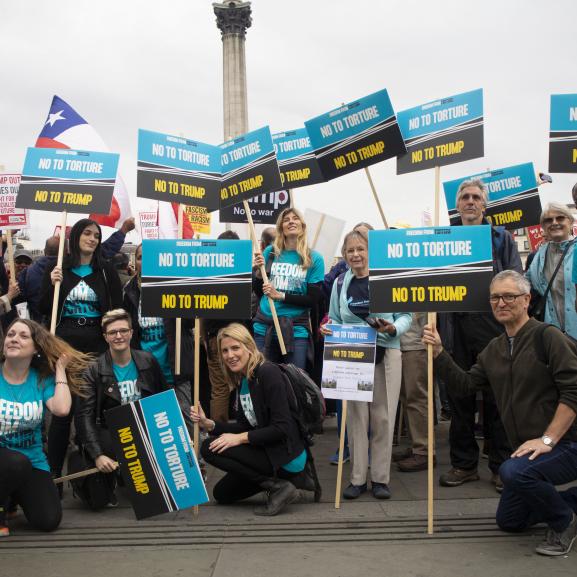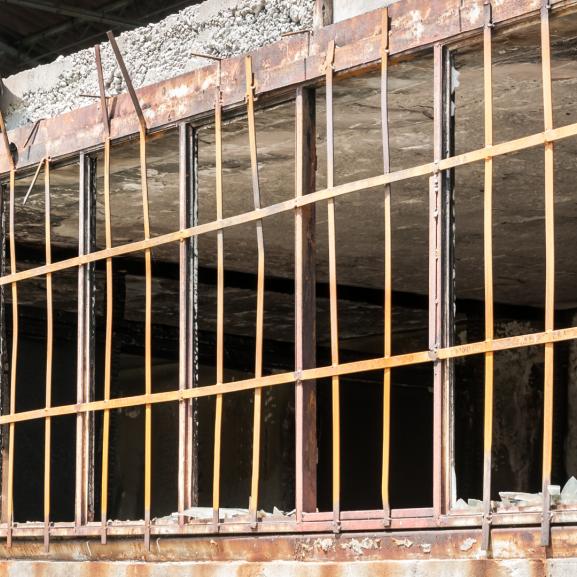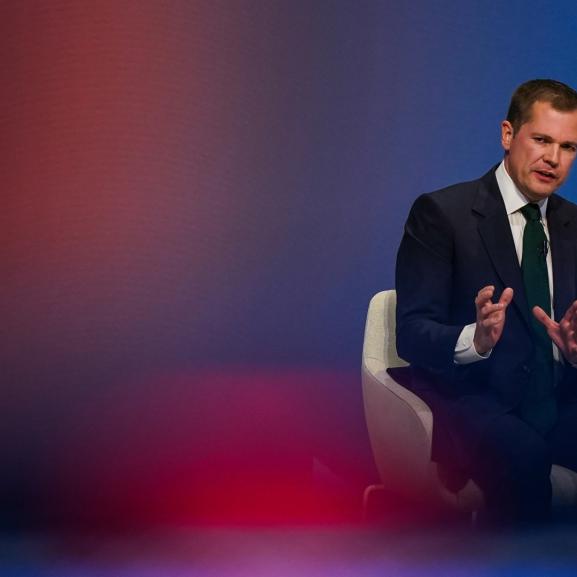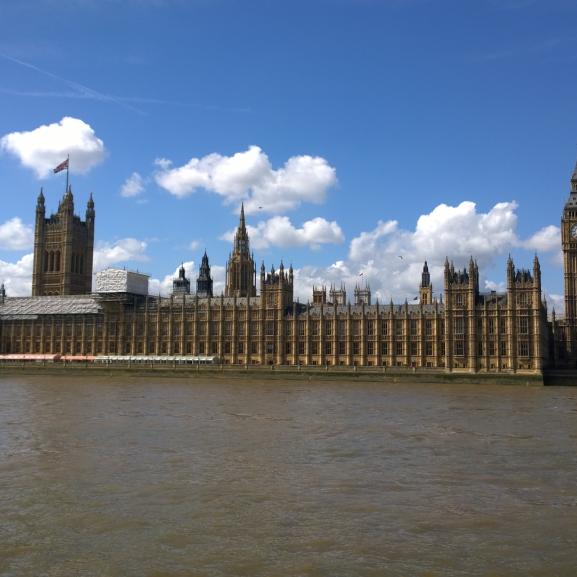Torture in Europe - A Practice that Refuses to Die
By Andrew Hogg - Senior Press Officer
The rule of law in Western Europe has, since World War Two, increasingly upheld the rights of the individual. Liberal sentiment in the respective judiciaries has gained such an ascendancy that those countries bathed in its light have become beacons to the persecuted and oppressed the world over.
Ten nations poised to join the EU in May 2004, however, include a number where torture, cruel, inhuman and degrading treatment usually ethnically based is still a regular occurrence.
Last year we provided help and support to nearly 750 newly arrived torture victims from 24 European countries. Perpetrators ranged from state security officers and gangsters operating with official connivance through to the ubiquitous "skinhead" nationalists of Eastern Europe.
The bulk of the victims from Europe seen at the Medical Foundation - more than 400 - were from Turkey, a country that has yet to meet the criteria for EU membership, which include the outright proscription of torture.
There the torture of Kurdish separatists and members of hard left organisations is so endemic that one leading Turkish human rights activist recently posited that there could be no improvement until the several thousand torturers employed by the state were retrained in other skills.
Many of the accession states poised on threshold of the EU, however, also presented cause for concern. The three Baltic states, Latvia, Lithuania and Estonia, as well as Poland, Slovakia, and the Czech Republic have each seen consistent attacks on ethnic minorities, particularly the Roma, that have met with little official interest. Cases dealt with by the Medical Foundation include:
Mrs N, a Ukrainian living in Estonia, fell foul of a group of Estonian nationals one of them a police officer - when she objected to their taking over a flat owned by her late sister. Her teenage daughter was raped, while she was threatened and beaten for her pains.
Mr B, an Armenian farmer living in Lithuania, was targeted by both police and the local mafia for protection money. The demands were accompanied by violence, including a hatchet attack on his hands when it became known he was a keen guitarist.
Mrs S, a Roma living in Poland, endured an attempted rape by a group of five men in a park in her home town. The only reaction of police when she reported the incident was to tell her not to walk alone in the evenings.
In all these countries safeguards exist to monitor human rights abuses. Each is already a member of the Council of Europe, as indeed is Turkey, and as such is subject to periodic checks by the European Committee for the Prevention of Torture and Inhuman and Degrading Treatment or Punishment (CPT).
Members of the committee - "independent and impartial experts from a variety of backgrounds" including lawyers, medical doctors and specialists in prison or police matters - are tasked with visiting at least once every four years all places where persons are deprived of their liberty in the 44 member states ratifying the Convention on which the CPT is based. Their findings are published, often with an accompanying reply from the government under scrutiny listing improvements made since the visit.
The committee has to give advance warning that its members are to visit a particular country, but they don't reveal which actual facilities they want to inspect until they get there. Government objections to the time or place of a visit can only be justified on limited grounds such as national defence and public safety.
It's an admirable system but hardly comprehensive, for most of the attacks recorded by the Medical Foundation took place outside places of detention. Even so, Dr Michael Peel, health and human rights adviser at the Medical Foundation says; "Such cases show at least a clear breach of the States" duty to prevent, investigate and punish violations of the human rights of the complainants," adding that in many cases, even when the authorities are not personally responsible for the ill-treatment, they are certainly acquiescent to it.
Dr Peel called for increased police training and support, a plea echoed by Claude Cahn, the programme director of the Hungary-based European Roma Rights Centre, who said: "For the most part, the penal codes in Eastern Europe are adequate to deal with racially motivated crime.
"However, prosecution is extremely lax. You will get justice if you die or if the international community is outraged about your case. But if it's anything less than murder, the perpetrators, if caught, will face a month, perhaps three, deprived of their liberty.
"What we want made public is the training that police get in dealing with race crime. All too often we hear that they will only actually accept an attack as a race crime if they hear racial abuse shouted. The programme should be open to public scrutiny, so that areas where training is needed become apparent and can be adequately dealt with."
Some police training is offered by the Organisation for Security and Co-operation in Europe (OSCE), the largest regional security organisation in the world, which works at conflict prevention, crisis management and post-conflict rehabilitation. But in Dr Peel's view, it does not go far enough.
"The OSCE's programme should be comprehensively co-ordinated with the Council of Europe," he says. "The OSCE see their main role as training but they tend not to follow it up. The CPT does follow up work but is prohibited by the Convention from sharing information, so communication between the two organisations is quite limited."
Extra resources for the CPT would be welcomed by its President, British criminologist Dr Silvia Casale. In the 14 years of its existence the committee has seen the number of Parties to the European Convention for the Prevention of Torture and inhuman or degrading treatment or punishment grow from 15 to 44, with the inclusion of Russia greatly increasing the size of the population that it monitors.
Resources, however, have not kept pace with that expansion. "At the moment we are doing 170 day visits a year from Russia to San Marino," says Dr Casale. "We had hoped that by now we would be up to 180 day visits, well on the way to our target of 200 day visits a year. The difficulty is that we simply don't have enough staff in our secretariat to carry out more visits. Four more would make all the difference."






